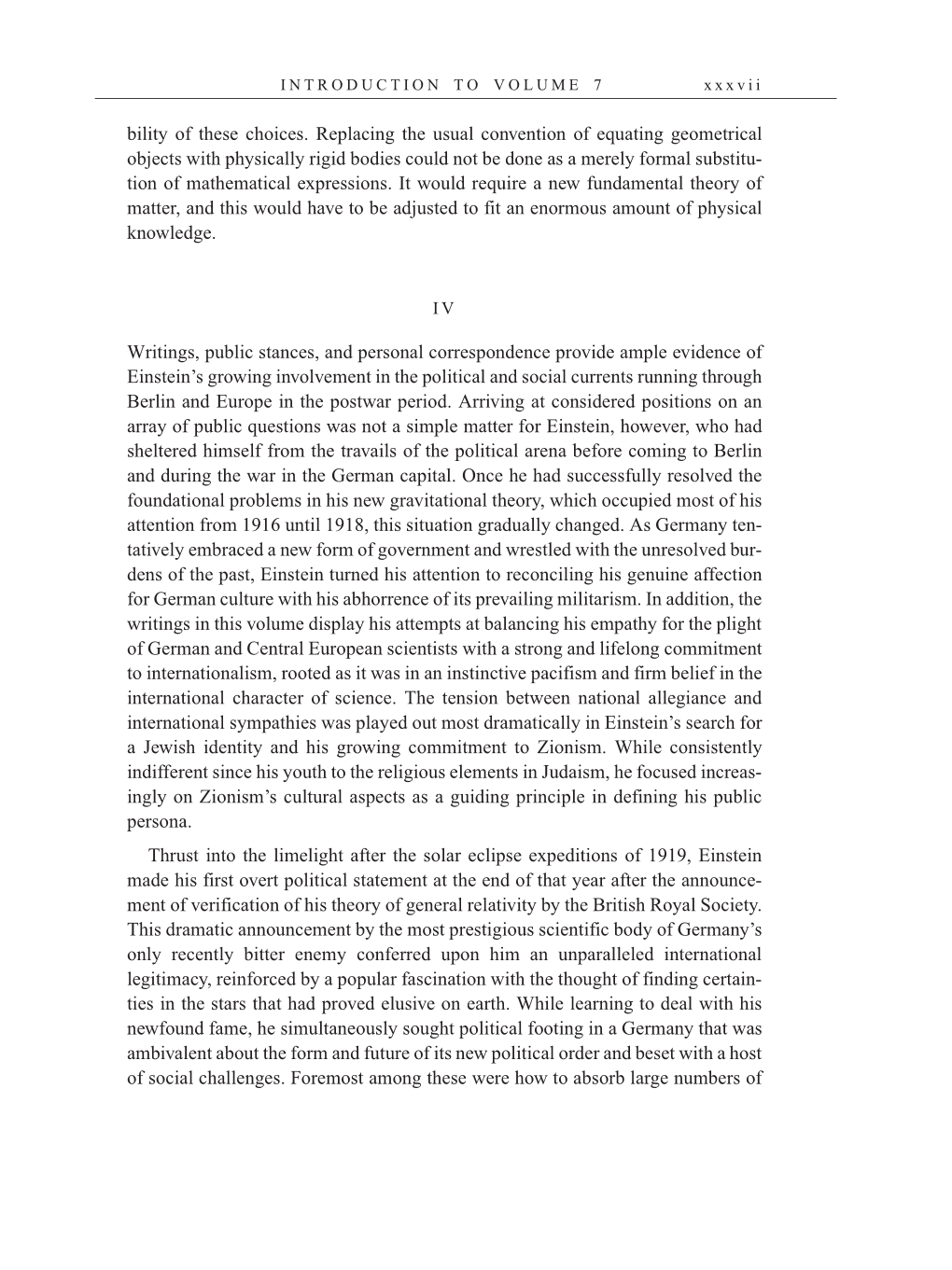I N T R O D U C T I O N T O V O L U M E 7 x x x v i i
bility of these choices. Replacing the usual convention of equating geometrical
objects with physically rigid bodies could not be done as a merely formal substitu-
tion of mathematical expressions. It would require a new fundamental theory of
matter, and this would have to be adjusted to fit an enormous amount of physical
knowledge.
I V
Writings, public stances, and personal correspondence provide ample evidence of
Einstein’s growing involvement in the political and social currents running through
Berlin and Europe in the postwar period. Arriving at considered positions on an
array of public questions was not a simple matter for Einstein, however, who had
sheltered himself from the travails of the political arena before coming to Berlin
and during the war in the German capital. Once he had successfully resolved the
foundational problems in his new gravitational theory, which occupied most of his
attention from 1916 until 1918, this situation gradually changed. As Germany ten-
tatively embraced a new form of government and wrestled with the unresolved bur-
dens of the past, Einstein turned his attention to reconciling his genuine affection
for German culture with his abhorrence of its prevailing militarism. In addition, the
writings in this volume display his attempts at balancing his empathy for the plight
of German and Central European scientists with a strong and lifelong commitment
to internationalism, rooted as it was in an instinctive pacifism and firm belief in the
international character of science. The tension between national allegiance and
international sympathies was played out most dramatically in Einstein’s search for
a Jewish identity and his growing commitment to Zionism. While consistently
indifferent since his youth to the religious elements in Judaism, he focused increas-
ingly on Zionism’s cultural aspects as a guiding principle in defining his public
persona.
Thrust into the limelight after the solar eclipse expeditions of 1919, Einstein
made his first overt political statement at the end of that year after the announce-
ment of verification of his theory of general relativity by the British Royal Society.
This dramatic announcement by the most prestigious scientific body of Germany’s
only recently bitter enemy conferred upon him an unparalleled international
legitimacy, reinforced by a popular fascination with the thought of finding certain-
ties in the stars that had proved elusive on earth. While learning to deal with his
newfound fame, he simultaneously sought political footing in a Germany that was
ambivalent about the form and future of its new political order and beset with a host
of social challenges. Foremost among these were how to absorb large numbers of
